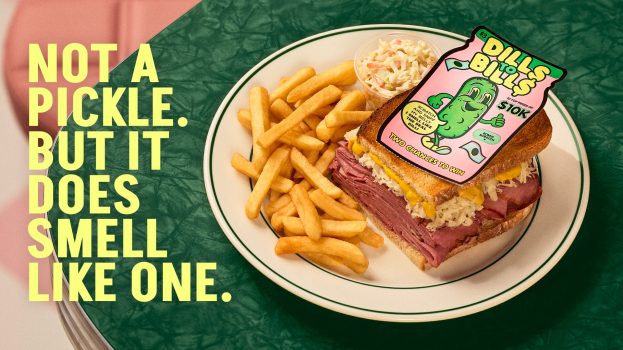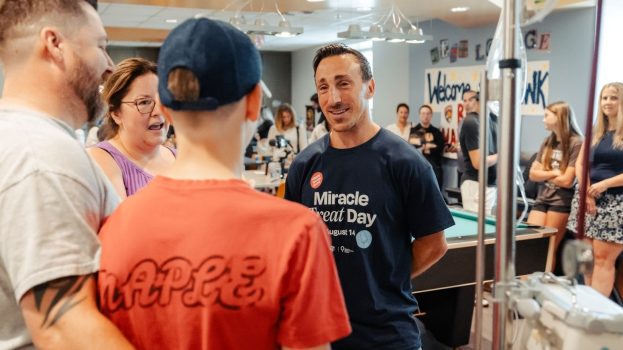There seems to be so many more media experts around these days! Perhaps aliens are capturing humans, injecting them with some degree of media knowledge and reintroducing them amongst us – a kind of media version of Invasion of the Body Snatchers. Must find a way to uncover the media amateurs. Must find a way.
Consider our legitimate media strategists, with 10 or more years of planning experience, who have their recommendations overturned by clients devoid of media experience. Pity our poor TV buyers, successfully predicting audiences for thousands of new TV shows, who attend cocktail parties and must listen to dentists, engineers or lawyers (particularly galling) expounding upon their favourites. The press is full of personal opinion disguised as media critique. An endless stream of media folks in the know appear in clips on newscasts and snippets of quotes in newspaper articles about media mergers, media launches and media innovations. Some are true experts; many are media amateurs who know only what they see, read or hear.
My quest to understand amateurism – and media amateurism in particular – was triggered last October when the weighty Saturday edition of The Globe and Mail landed on our front porch with an early morning thump. Inside, the Review section featured a front-page story about one strange dude – John Kricfalusi. He, with the unpronounceable last name, is the father of Ren and Stimpy, which is to The Care Bears what Kafka is to Harry Potter.
Kricfalusi has come to the conclusion that today’s animation industry, and in fact society in general, is rife with amateurism. Our world produces amateurs, according to Kricfalusi, because ‘in our society everybody must be allowed to express their creativity or else they will suffer from low self-esteem and, Lord help us, we can’t have that.’ The problem is this; if everyone is thought to be ‘creative,’ then truly creative output will not be recognized, rewarded and therefore encouraged.
Russell Smith (who writes the Virtual Culture column for the Globe) cast additional light on the subject of amateurism in his article entitled ‘Do-it-yourself-ism in the computer age’ which coincidentally, appeared in that same Review section. Smith tells us how he has been recently composing ‘bad dance music’ on his computer thanks to a piece of downloaded software. He opines that the computer and waves of new software make it easy for us all to become publishers, composers, visual artists, designers, architects and ad designers.
Amateurism, which might be caused by low self-esteem (Kricfalusi) or a profusion of do-it-yourself computer software (Smith) helps to explain the normal run-of-the-mill amateurism we experience in visual arts, music, writing, publishing, cartooning and composing. But this is small potatoes amateurism – a kind of amateur amateurism.
If you want to see real professional amateurism, look at our media business, because our industry’s amateurs know a great deal about what they personally like. After all, media does exist to be observed. The smart media amateurs actually sound like professionals. Some media amateurs actually find themselves in positions of power, overseeing a company’s media programs.
So how do we uncover the amateurs lurking amongst us? Ask this question: Does that so-called media expert transpose personal viewpoints to consumer target groups? If the answer is yes, you’ve uncovered a cleverly disguised media amateur.
Again, coincidentally, that same Saturday Globe and Mail Review section contained another pertinent article. Stephen Smith wrote about Mordecai Richler’s lost, unpublished first novel called The Rotten People. Generally considered to be ‘awful’ and amateurish, this first attempt did provide Richler with the opportunity to make mistakes in a safe, non-public environment. Even one of our country’s greatest writers needed time to learn how to do the job right.
When young media novices enter our business and spend two or three years toiling in the media department boiler rooms, they, like Richler, take their first embarrassing planning and buying steps, far removed from client eyes. They learn a most important lesson – how to kick the habit of allowing their personal likes and dislikes about a radio station or a newspaper or a TV show to impact a media plan. Those early years give budding media professionals the chance to hone their intuition.
If you encounter a media person who thinks like a consumer segment, you’re safe. That’s a real media professional. But if the so-called expert thinks like an individual, run for it. That’s a cleverly disguised media amateur who has been captured by aliens and sprayed with a superficial layer of media knowledge.
Rob Young is one of the founders of Toronto-based Harrison, Young, Pesonen & Newell. He can be reached at ryoung@hypn.com.























